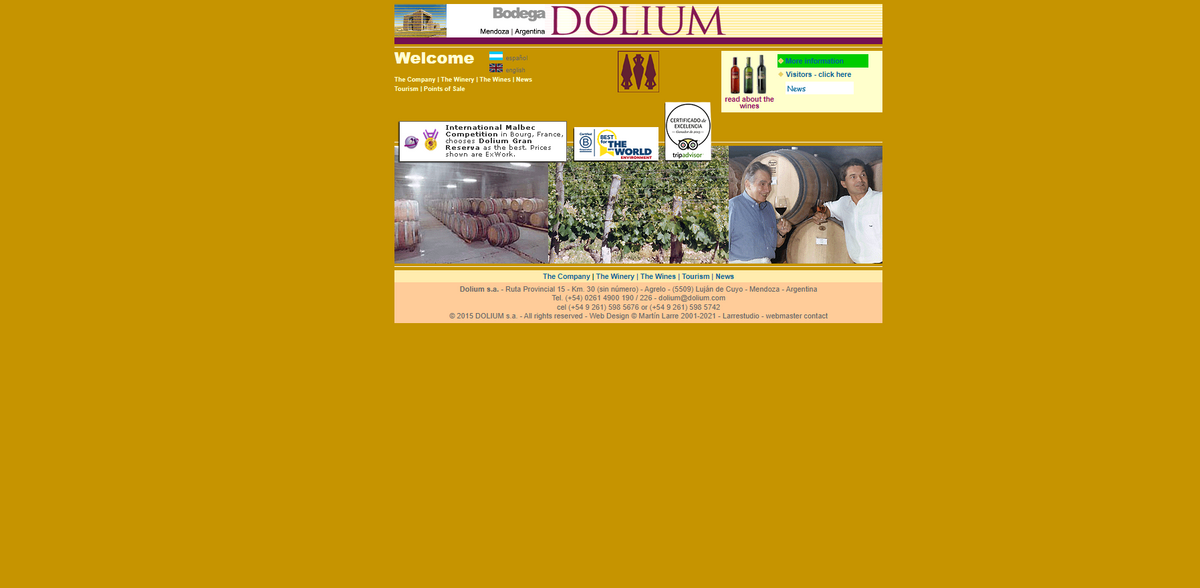Dolium Winery: A Sustainable Approach to Winemaking
In the heart of Mendoza, Argentina, lies Dolium Winery, a unique establishment that combines ancient winemaking traditions with modern technology. This winery is not just about producing fine wines; it is also committed to sustainability and environmental responsibility. Dolium stands out as the first underground winery in Argentina, utilizing the natural earth to maintain optimal conditions for wine production. This article explores the sustainable practices of Dolium Winery and how they align with the United Nations Sustainable Development Goals.
Main Benefits of Dolium Winery
- Utilizes underground facilities to maintain temperature and reduce energy consumption.
- Employs organic farming practices to enhance soil health and biodiversity.
- Focuses on hand-picking grapes to ensure quality and minimize waste.
- Invests in state-of-the-art technology to optimize production processes.
- Offers educational tours to promote awareness of sustainable practices.
The Underground Winery Concept
Dolium Winery is a pioneer in the underground winery concept. This innovative approach allows for a stable temperature and humidity level, which is crucial for the fermentation and aging of wine. By utilizing the earth’s natural insulation, Dolium reduces its reliance on artificial climate control systems. This not only lowers energy consumption but also minimizes the winery’s carbon footprint. The design reflects a deep respect for nature and a commitment to sustainable practices.
Organic Farming Practices
At Dolium, the vineyards are cultivated using organic farming methods. This means no synthetic pesticides or fertilizers are used, which helps to preserve the local ecosystem. The winery focuses on enhancing soil health through natural composting and crop rotation. This practice not only improves the quality of the grapes but also supports biodiversity in the region. Healthy soils lead to healthier vines, resulting in better wines that reflect the terroir of Mendoza.
Hand-Picked Grapes for Quality
Dolium believes that quality starts in the vineyard. All grapes are hand-picked, ensuring that only the best fruit is selected for winemaking. This meticulous process reduces waste and allows for careful selection based on ripeness and quality. By involving skilled workers in the harvesting process, Dolium supports local employment and promotes a sense of community. This hands-on approach is a testament to their commitment to producing exceptional wines.
State-of-the-Art Technology
While Dolium honors traditional winemaking techniques, it also embraces modern technology. The winery is equipped with the latest machinery that enhances efficiency and reduces waste. For example, the fermentation process is closely monitored using advanced sensors, ensuring optimal conditions for the grapes. This blend of old and new allows Dolium to produce high-quality wines while minimizing environmental impact. The focus on innovation reflects a forward-thinking approach to sustainability.
Educational Tours and Community Engagement
Dolium Winery offers personalized tours that educate visitors about sustainable winemaking practices. These tours are not just about tasting wine; they provide insights into the winery’s commitment to the environment. Visitors learn about organic farming, the importance of biodiversity, and the benefits of sustainable practices. By engaging with the community and sharing knowledge, Dolium fosters a culture of sustainability that extends beyond its vineyards.
Conclusion
Dolium Winery exemplifies how a business can thrive while prioritizing sustainability. Through innovative practices, organic farming, and community engagement, Dolium is making a positive impact on the environment and the local economy. Their commitment to quality and sustainability aligns with the United Nations Sustainable Development Goals, showcasing that fine winemaking and environmental responsibility can go hand in hand.
UN Sustainable Development Goals Linked to Dolium Winery
- Goal 12: Responsible Consumption and Production
- Goal 13: Climate Action
- Goal 15: Life on Land
- Goal 8: Decent Work and Economic Growth
- Goal 4: Quality Education
For more information about Dolium Winery and its sustainable practices, visit Dolium Winery.






















